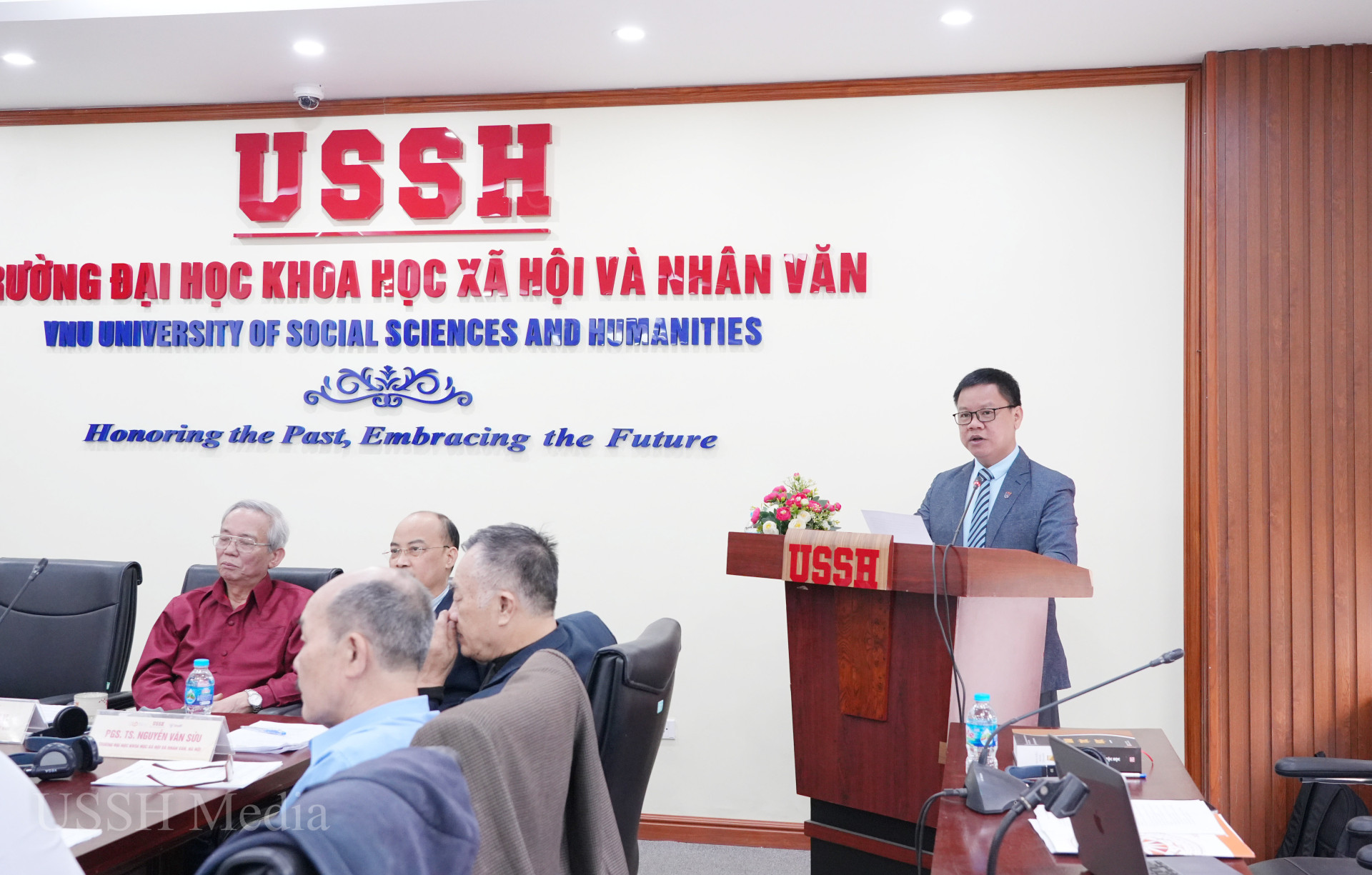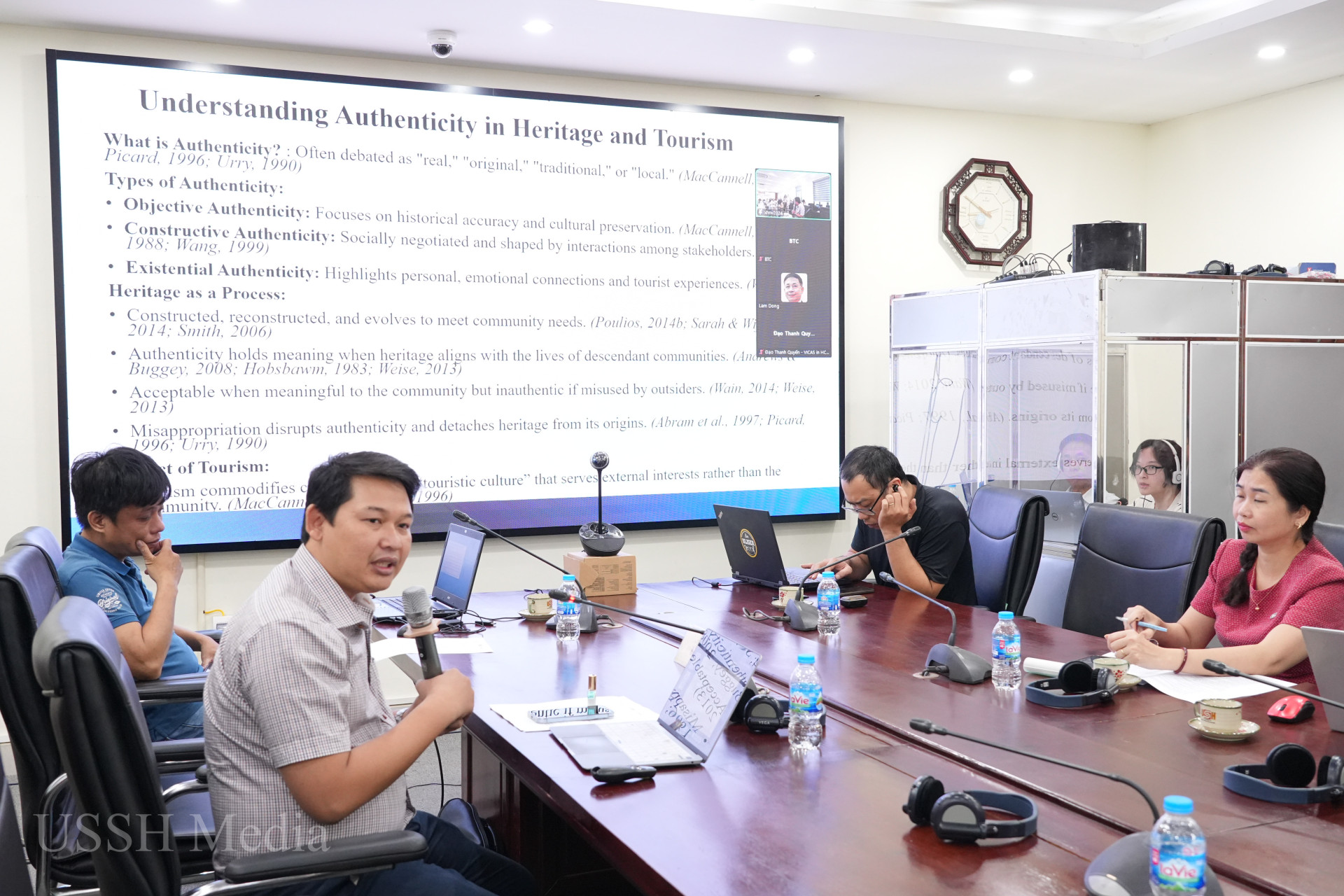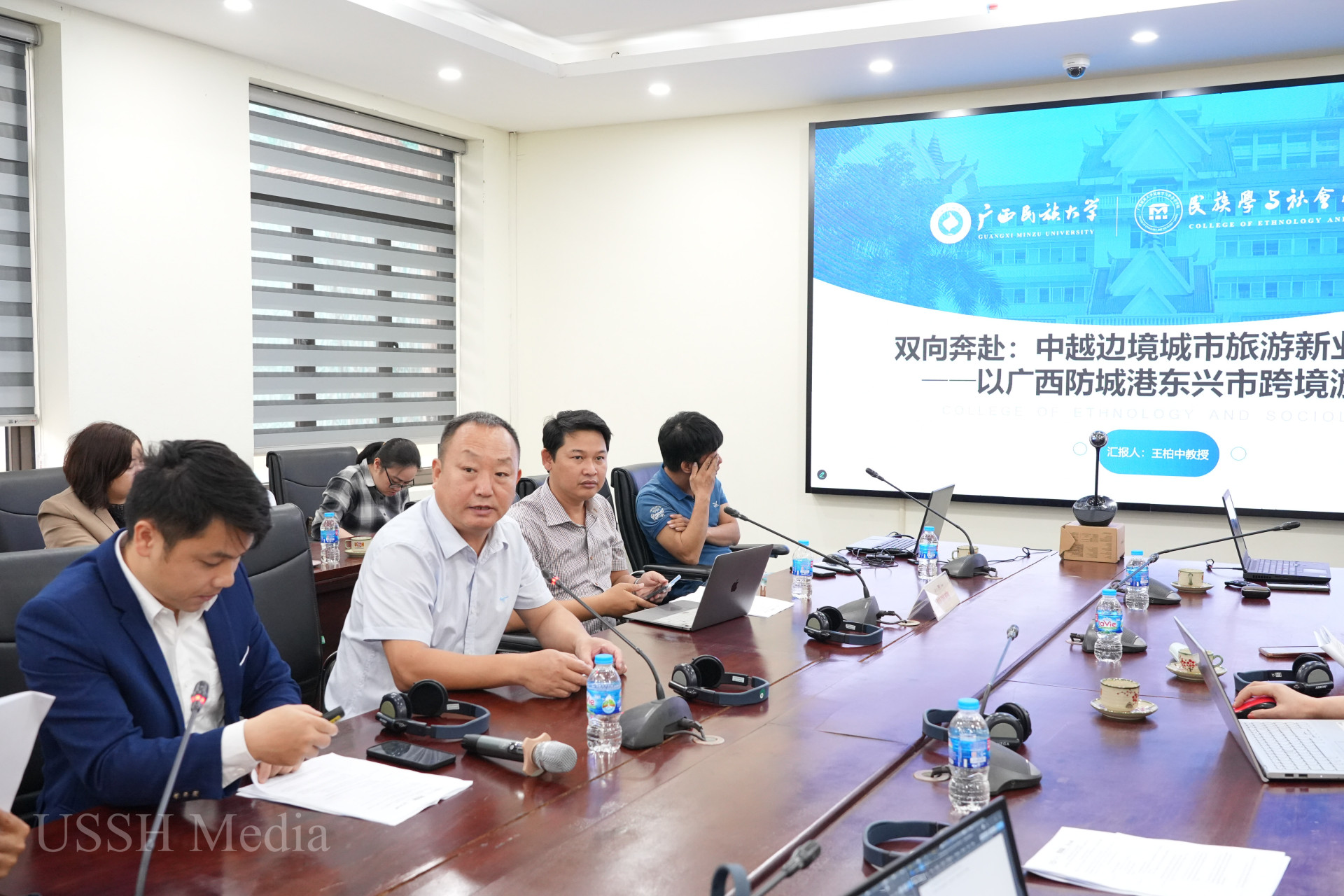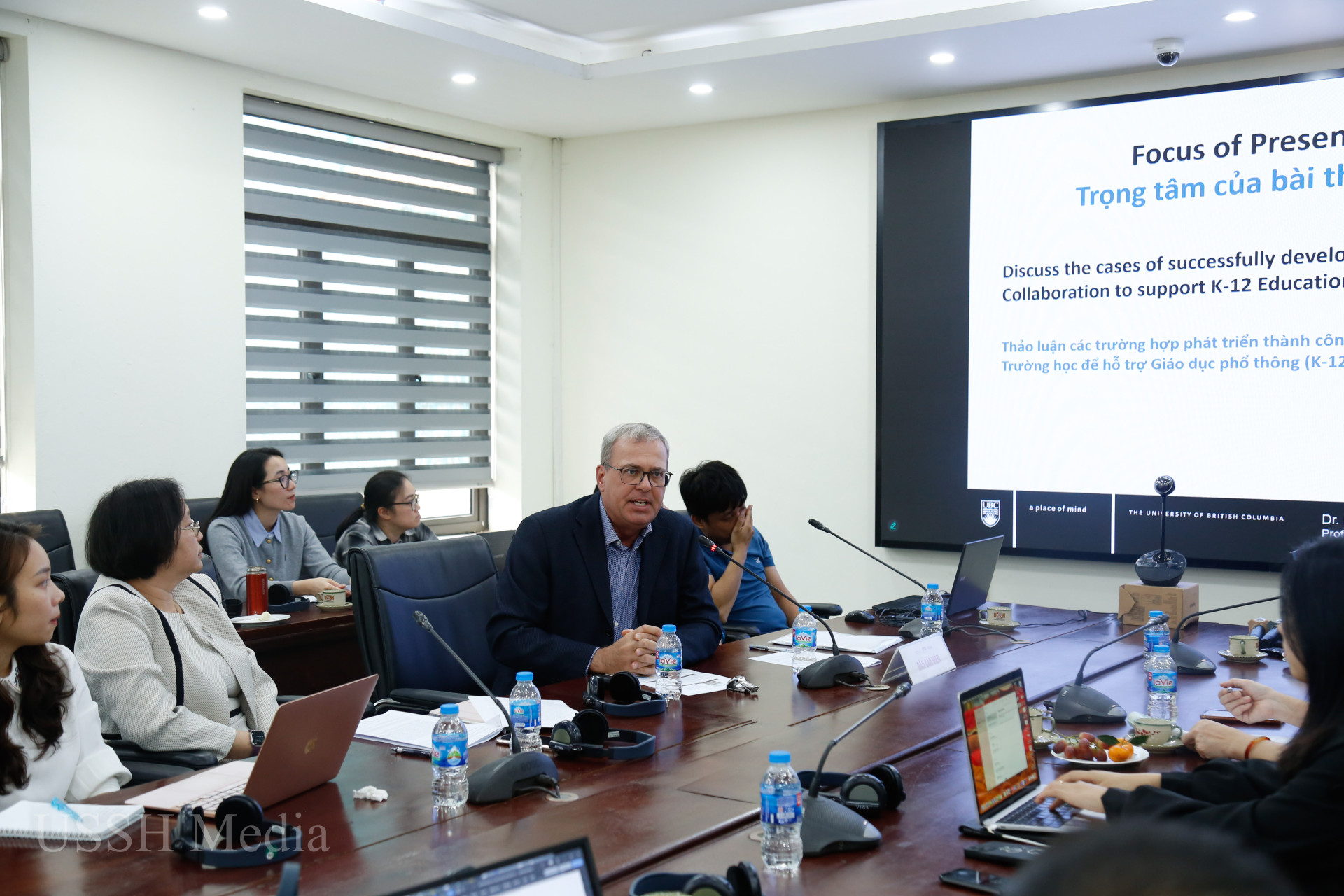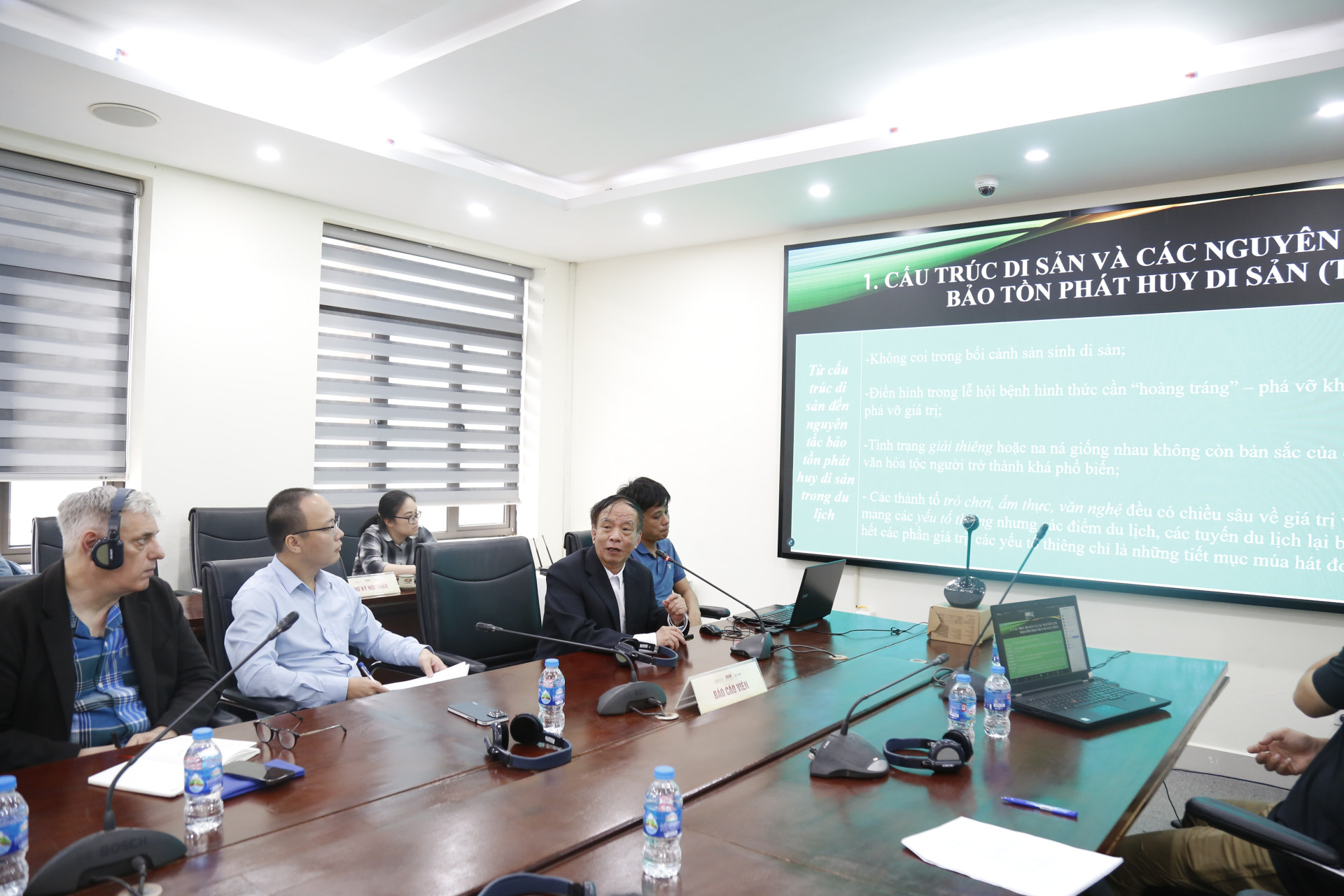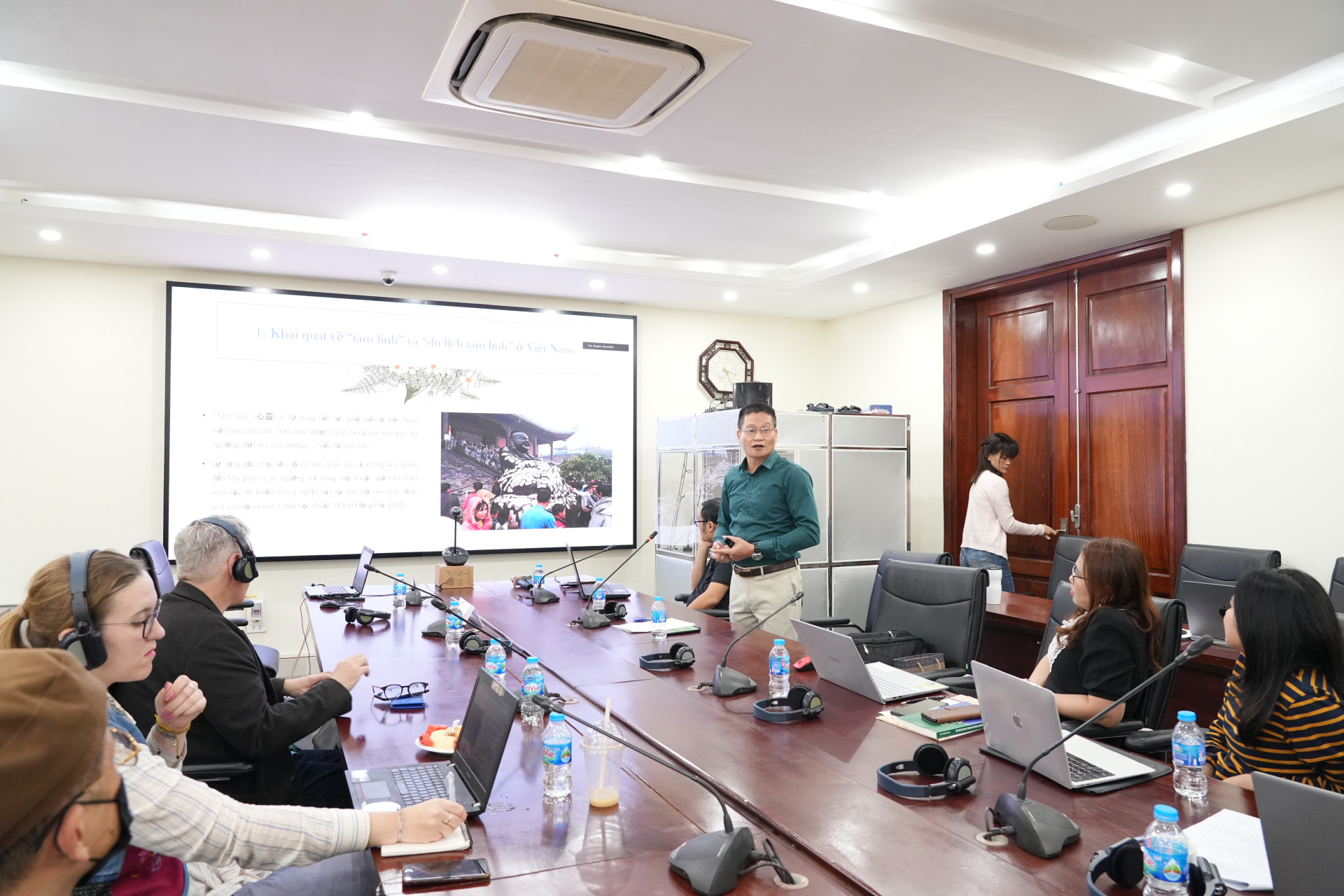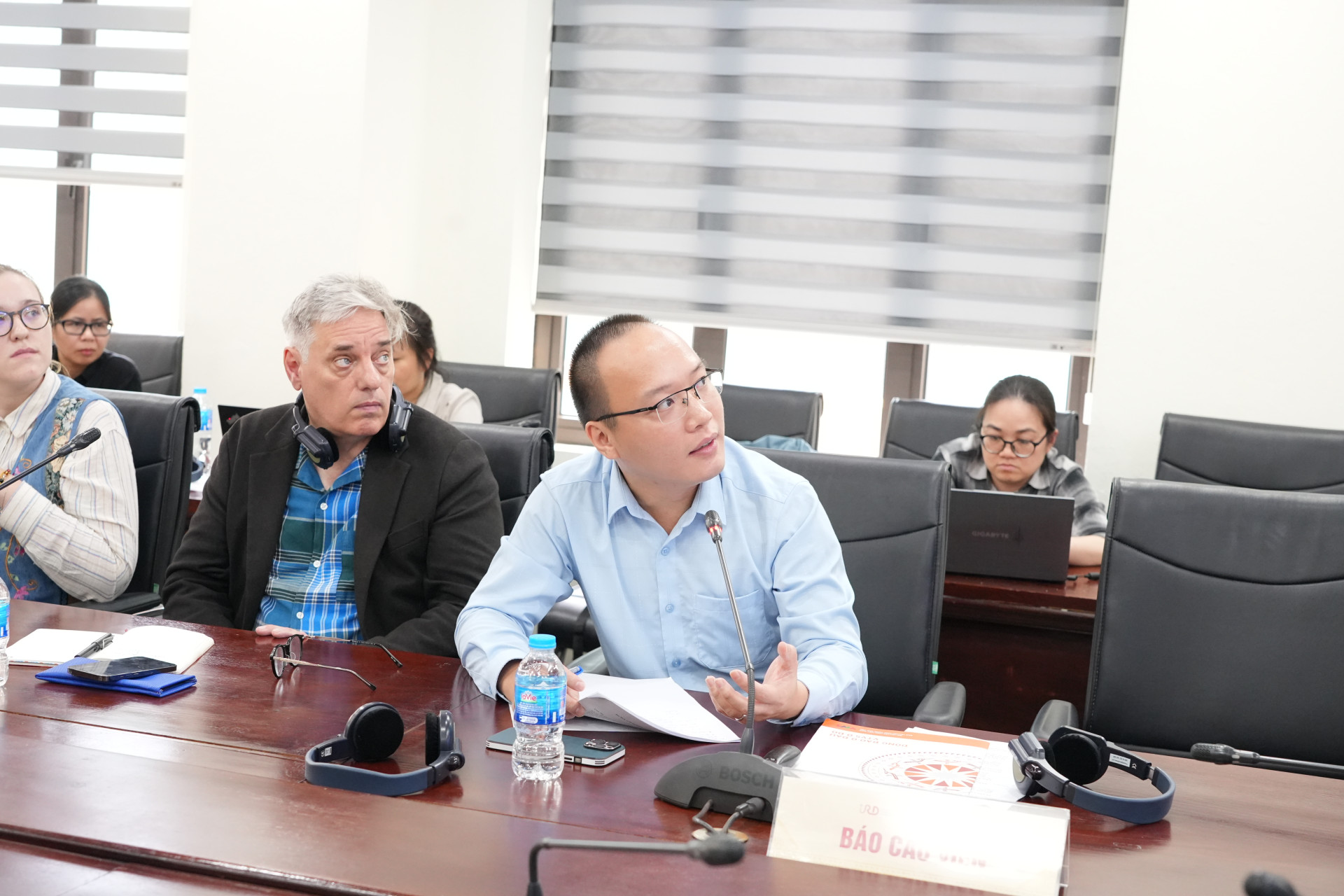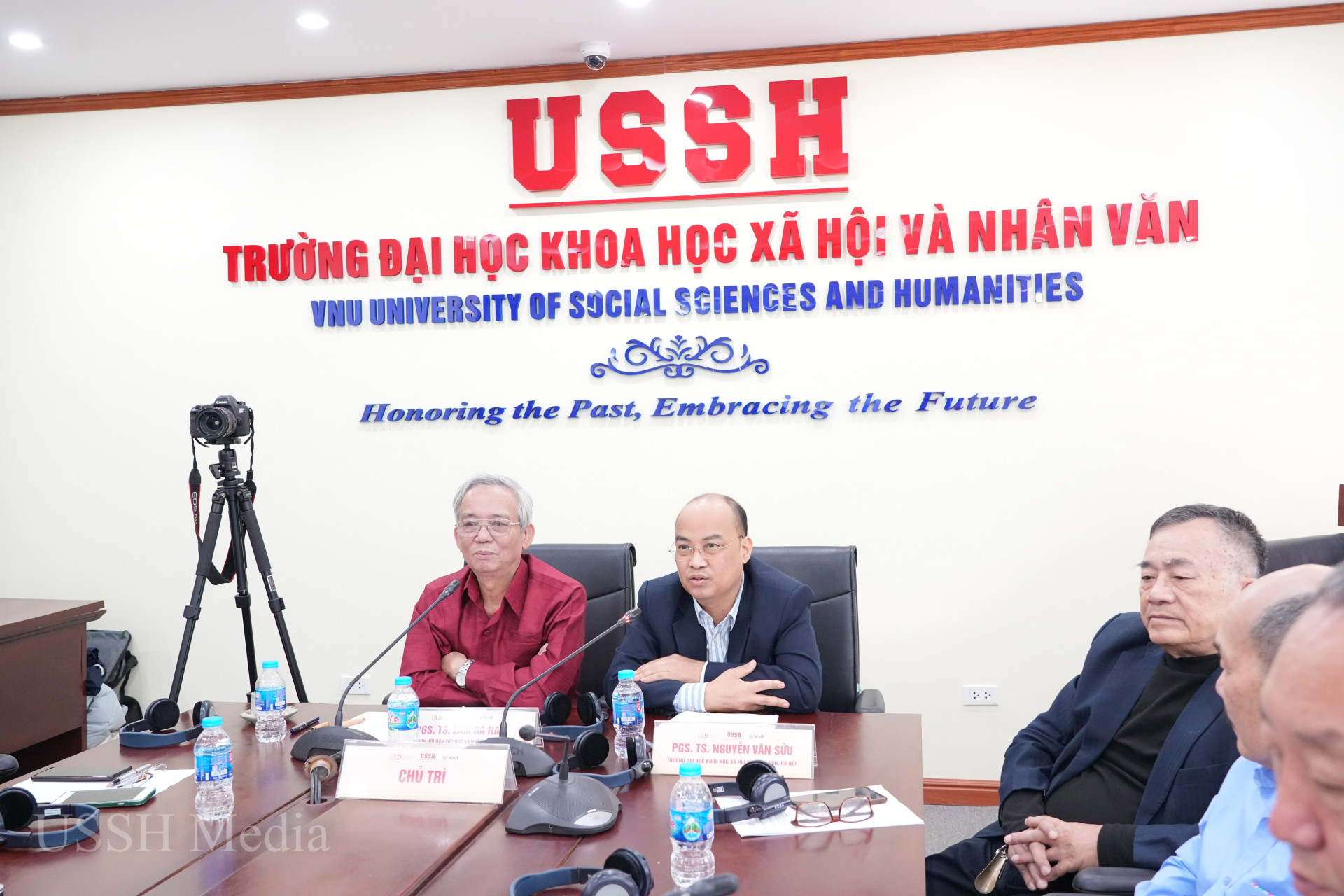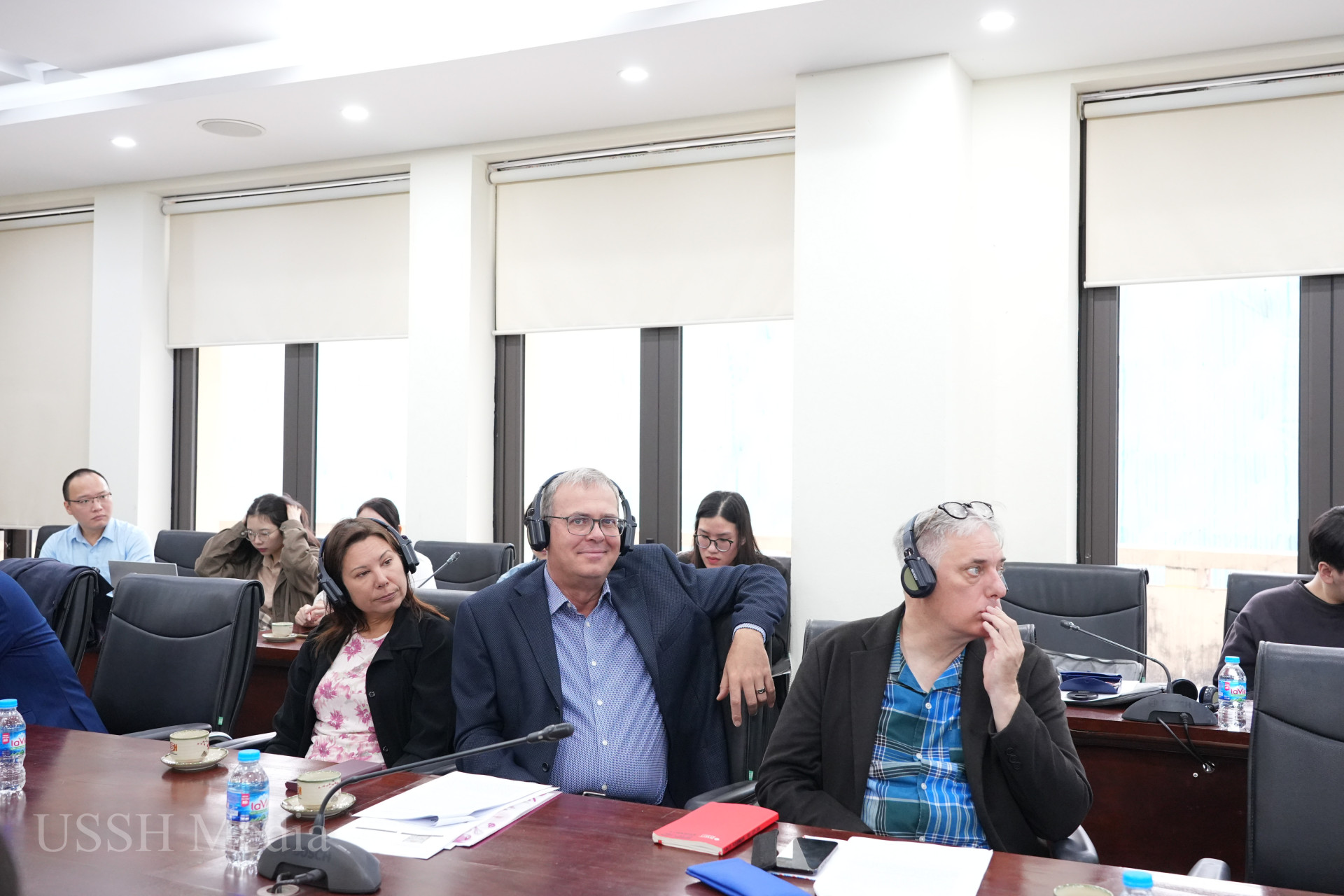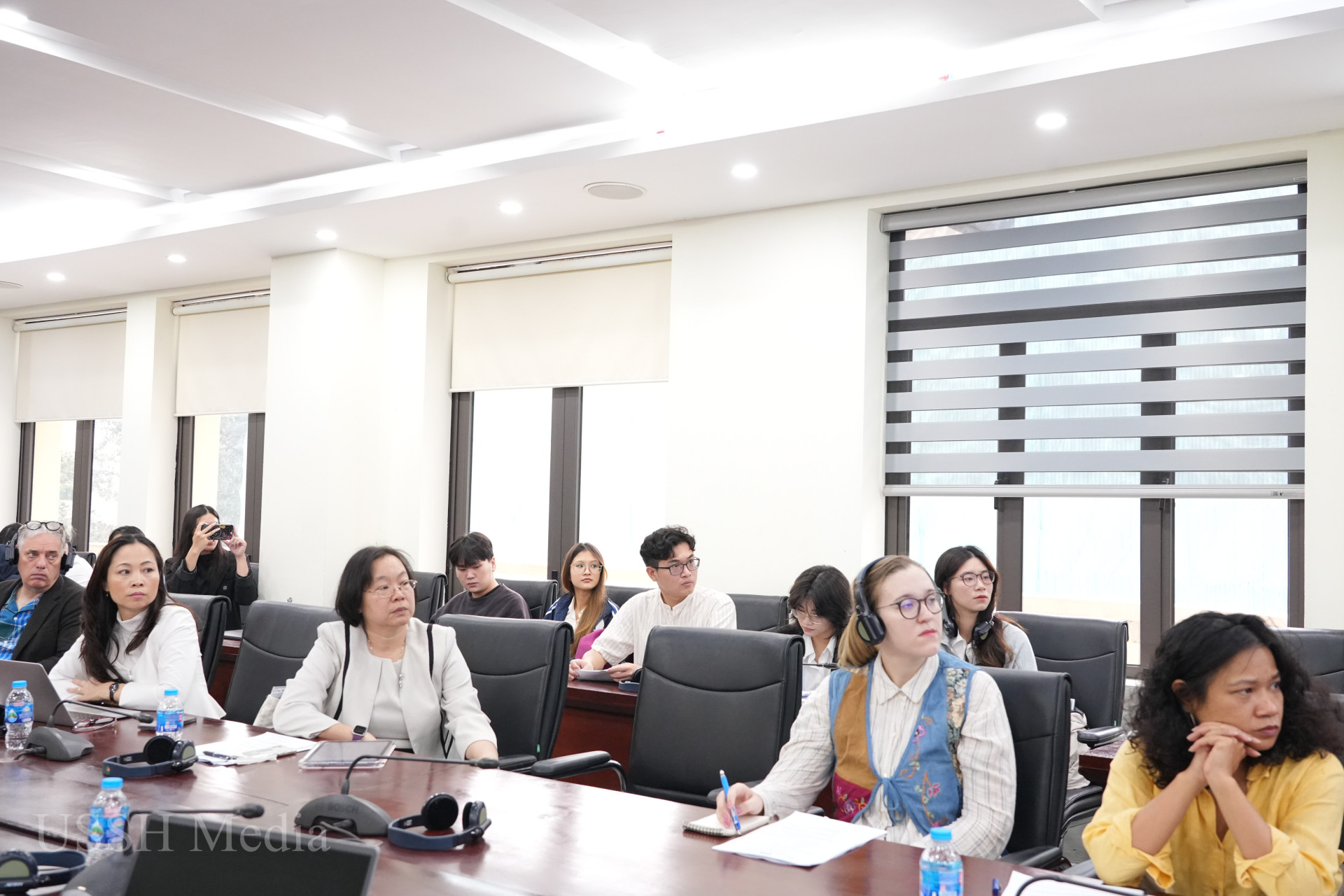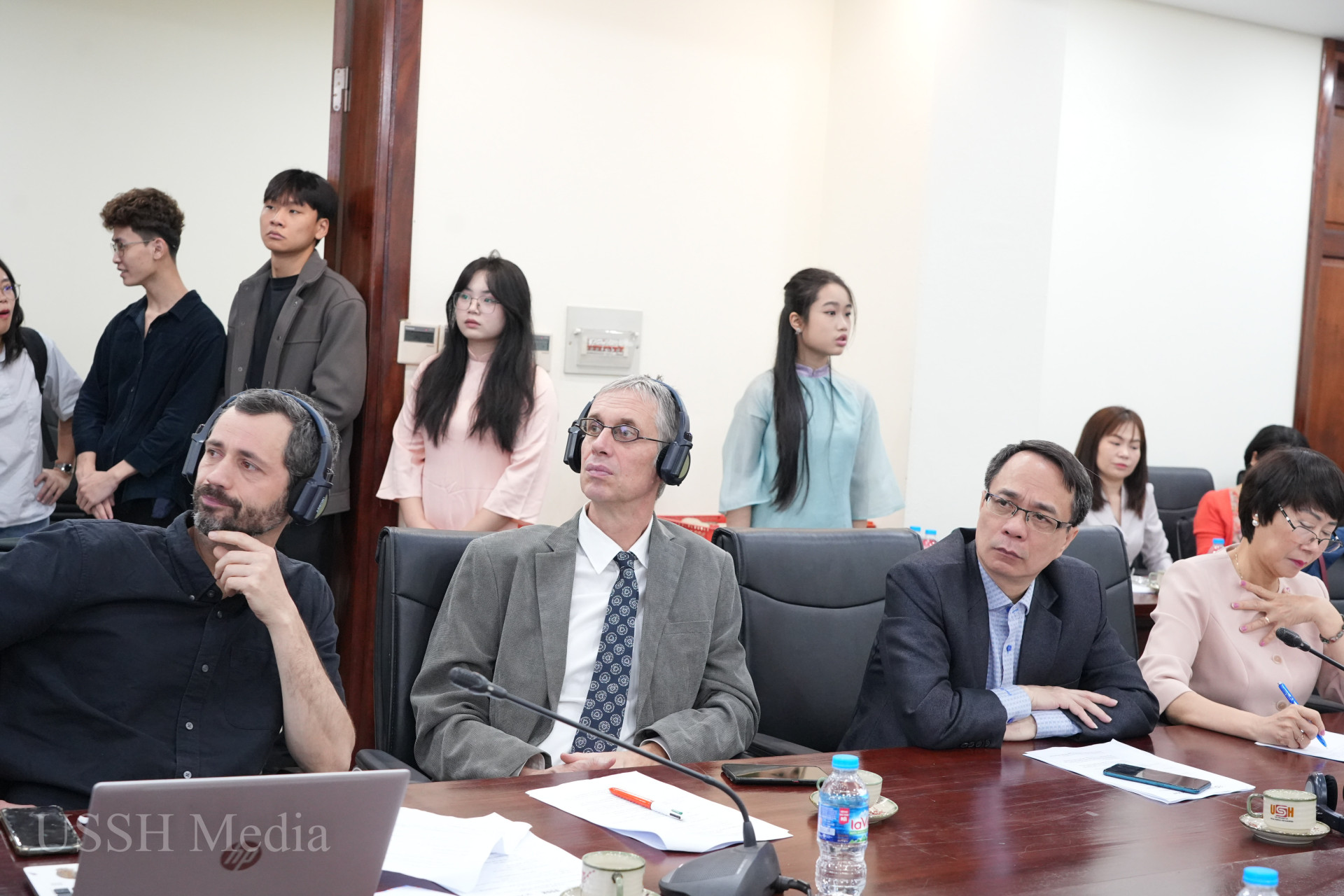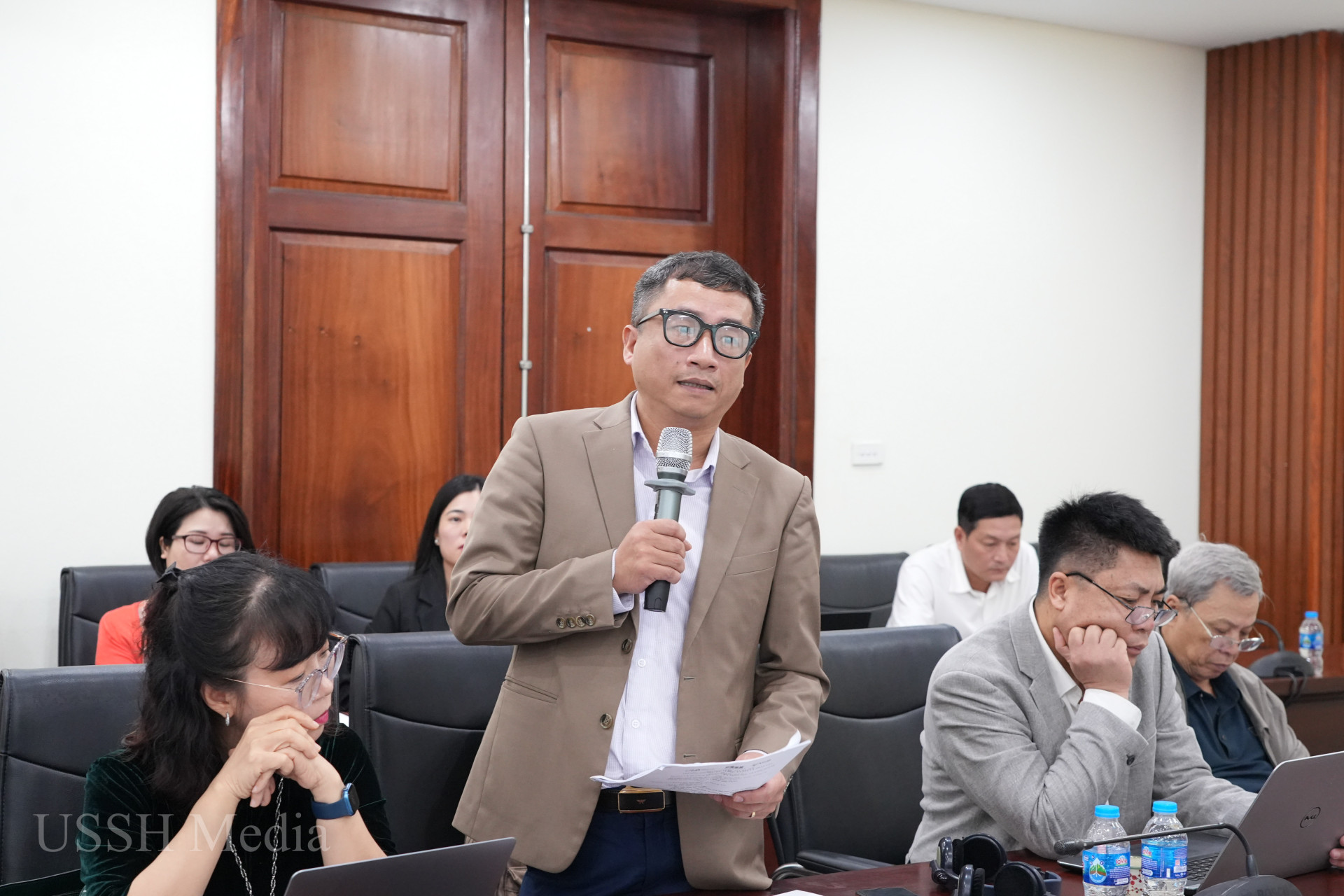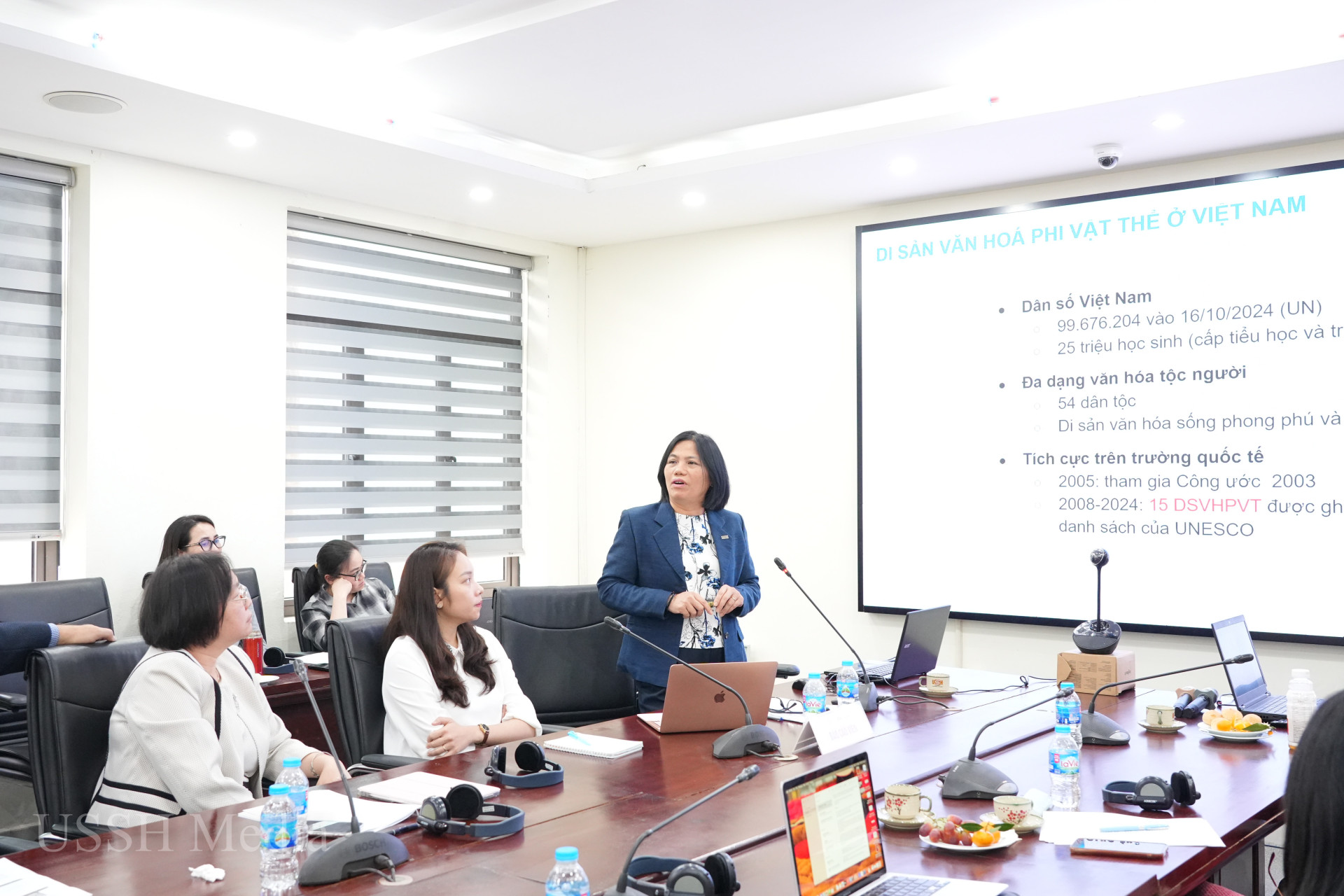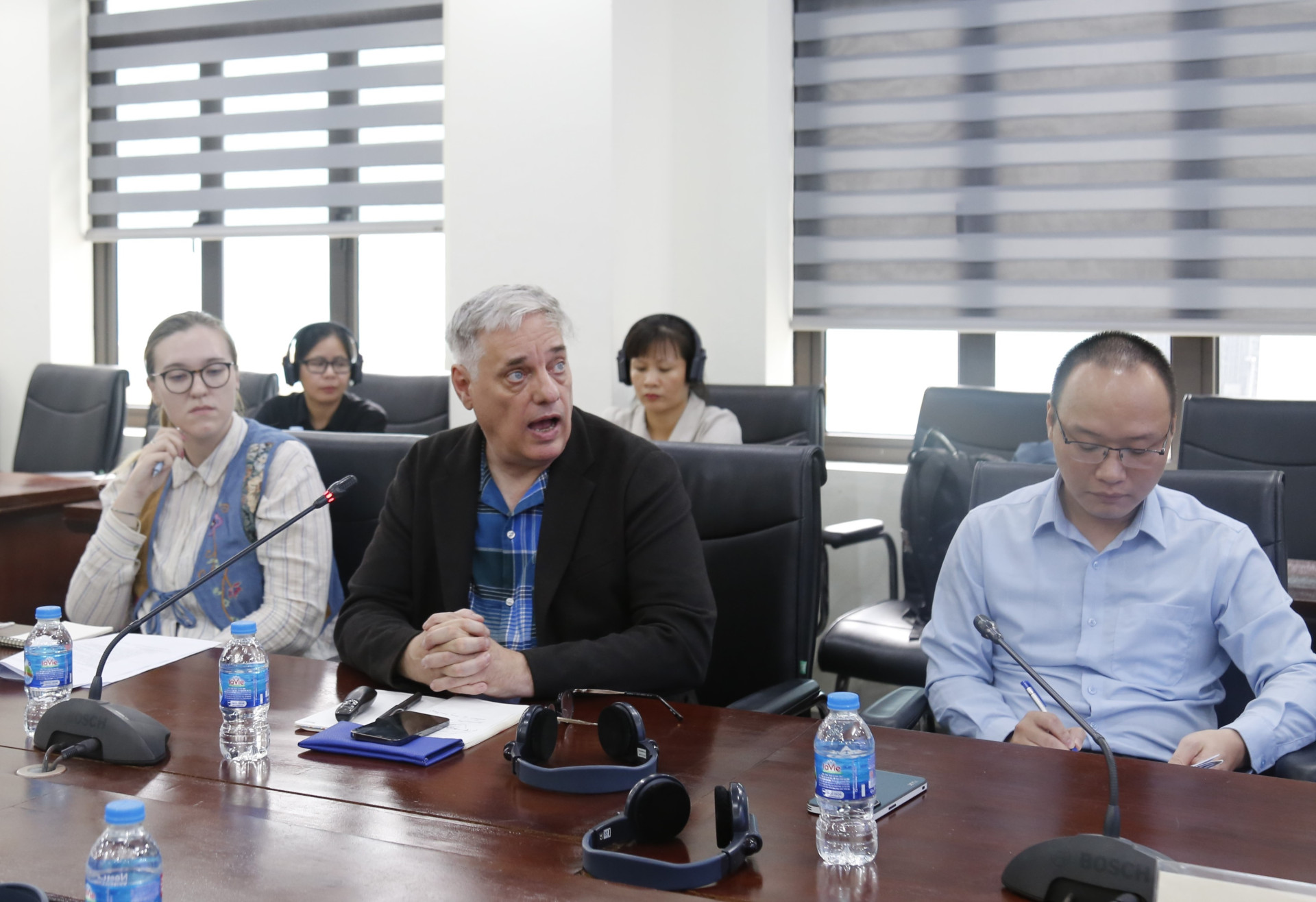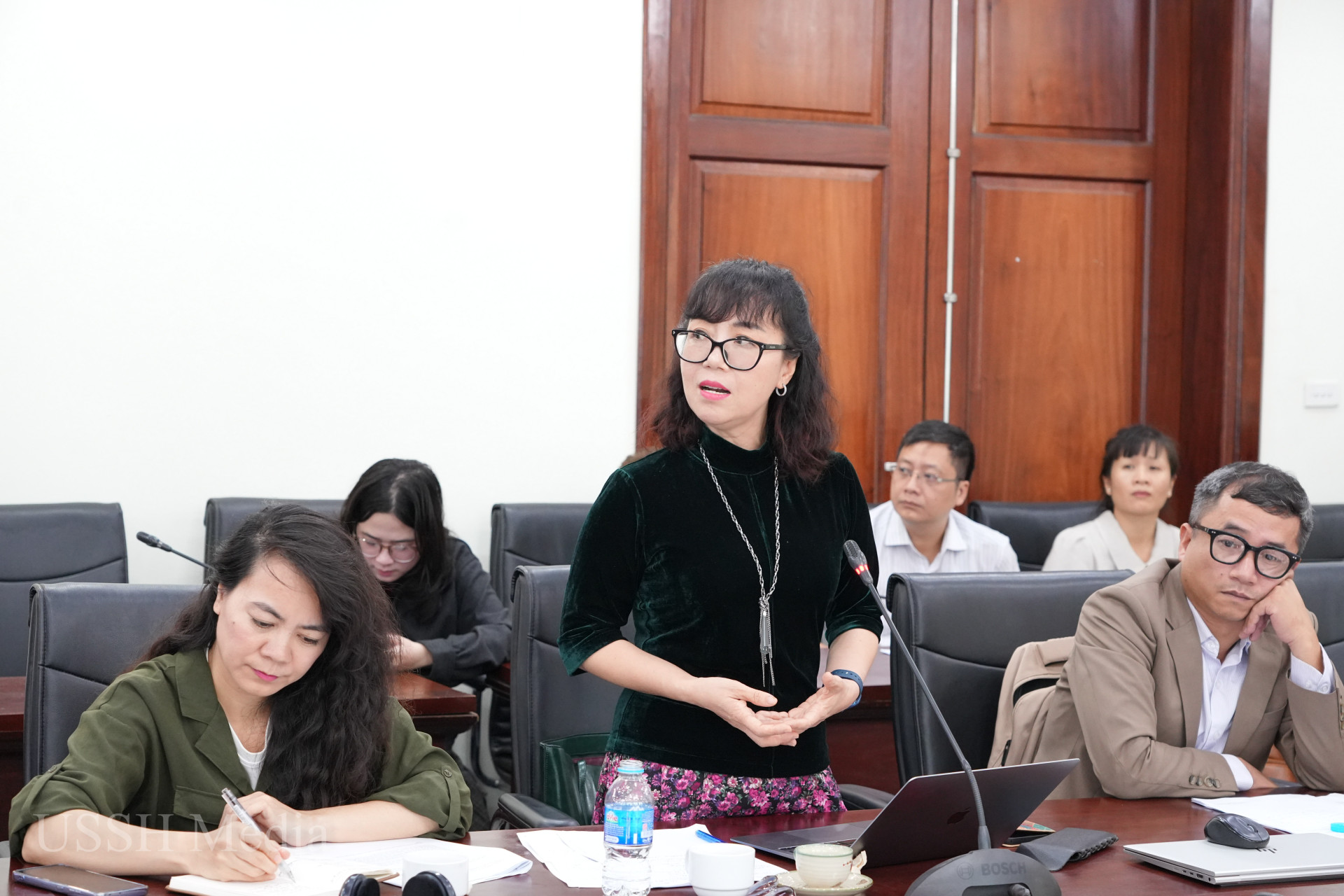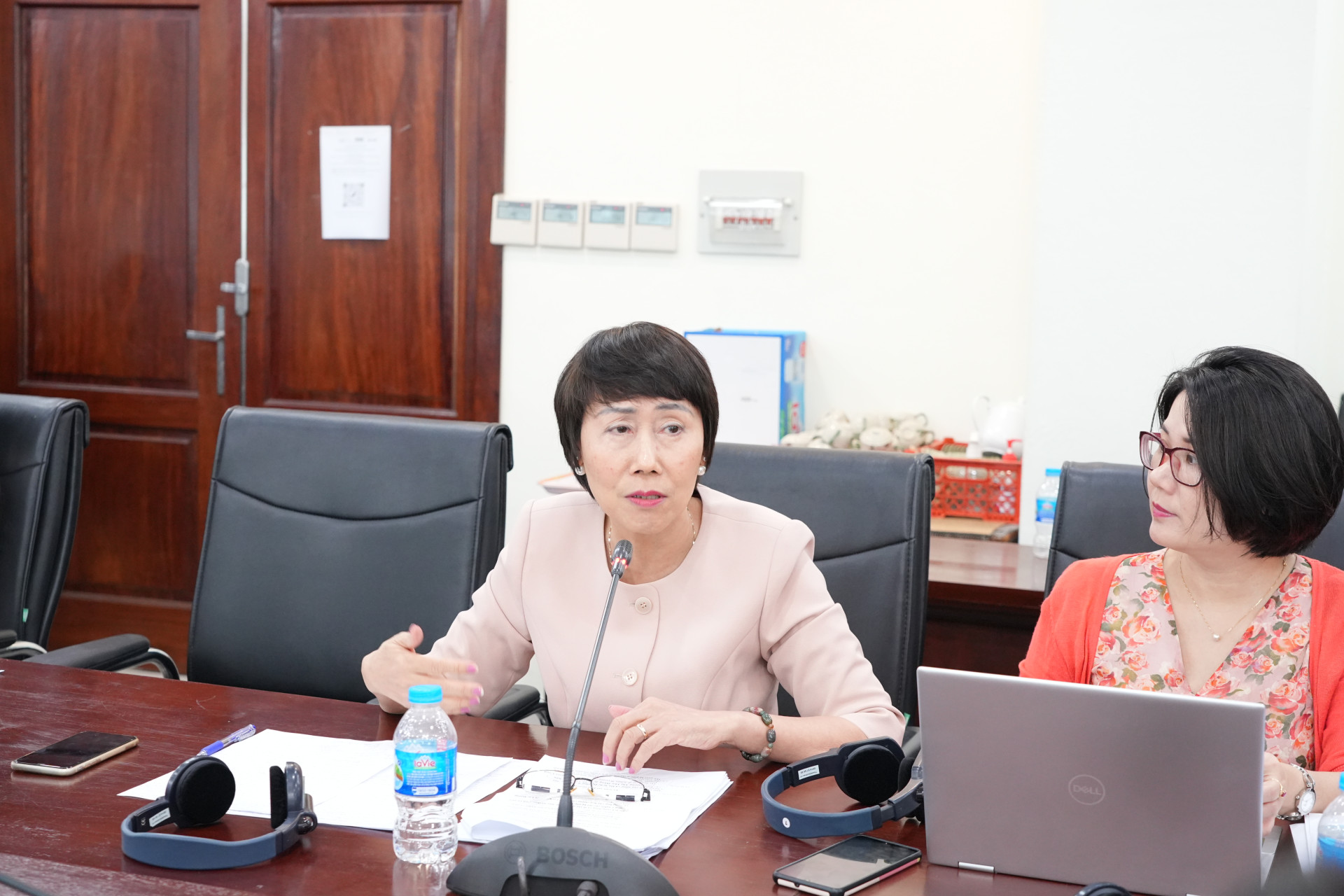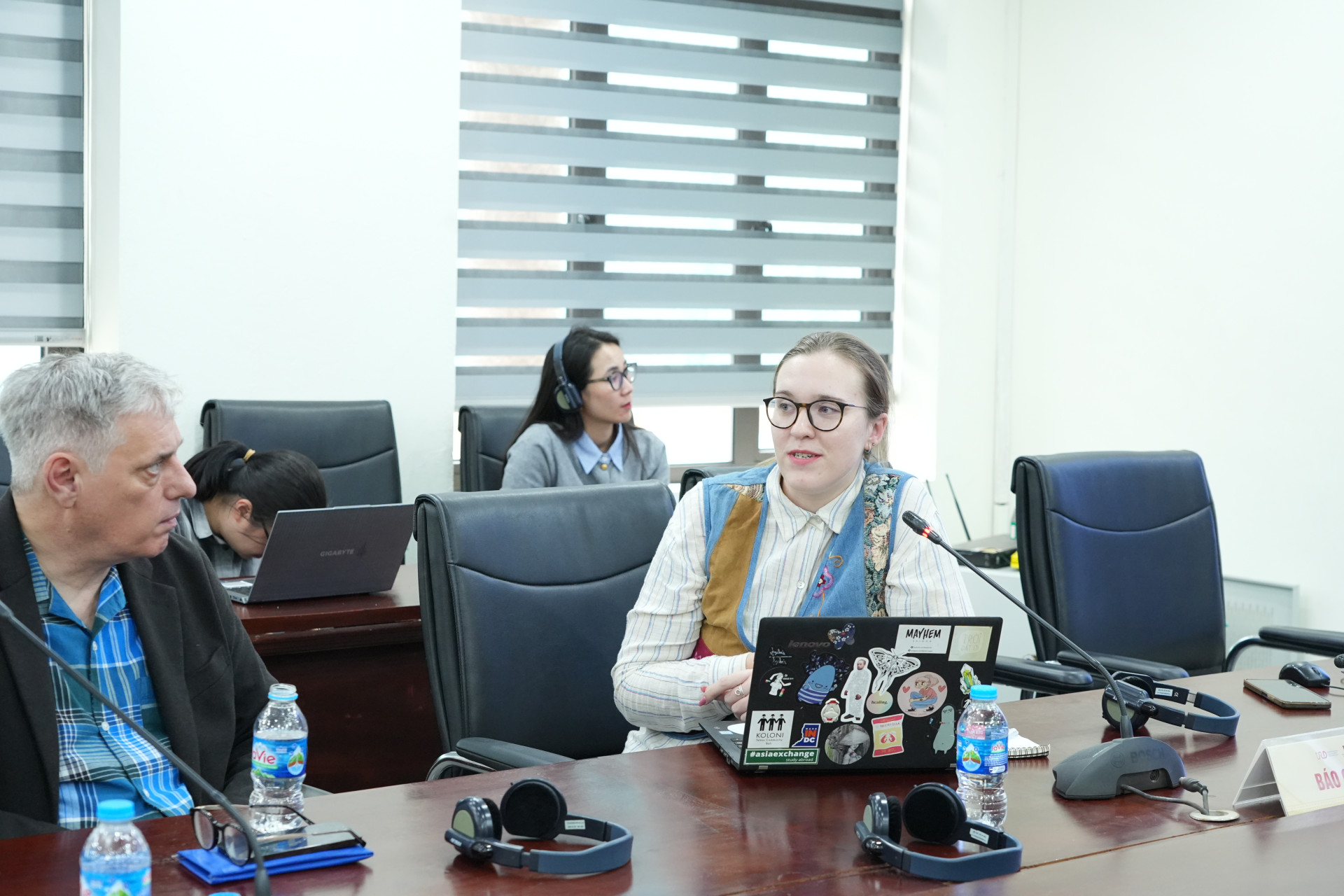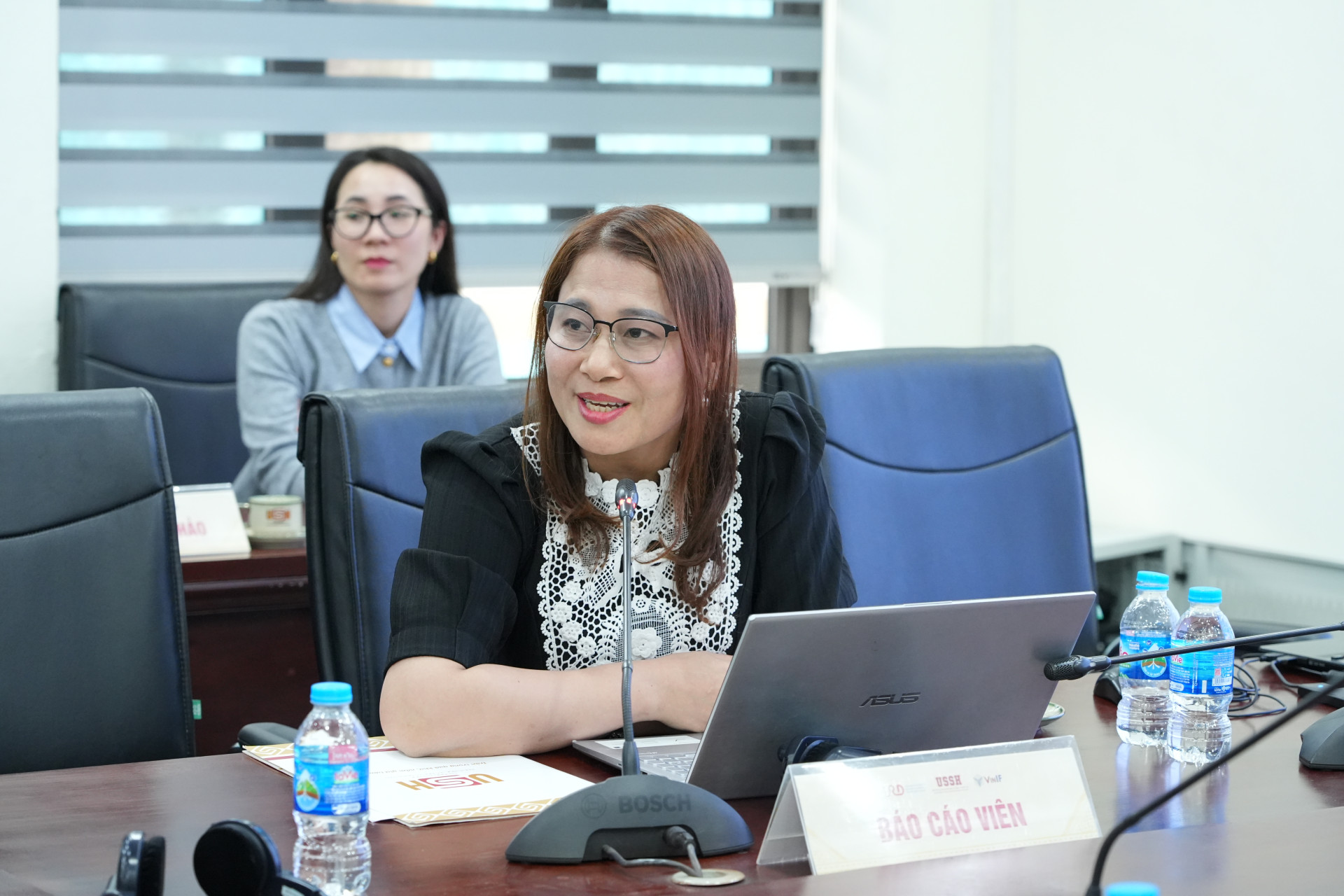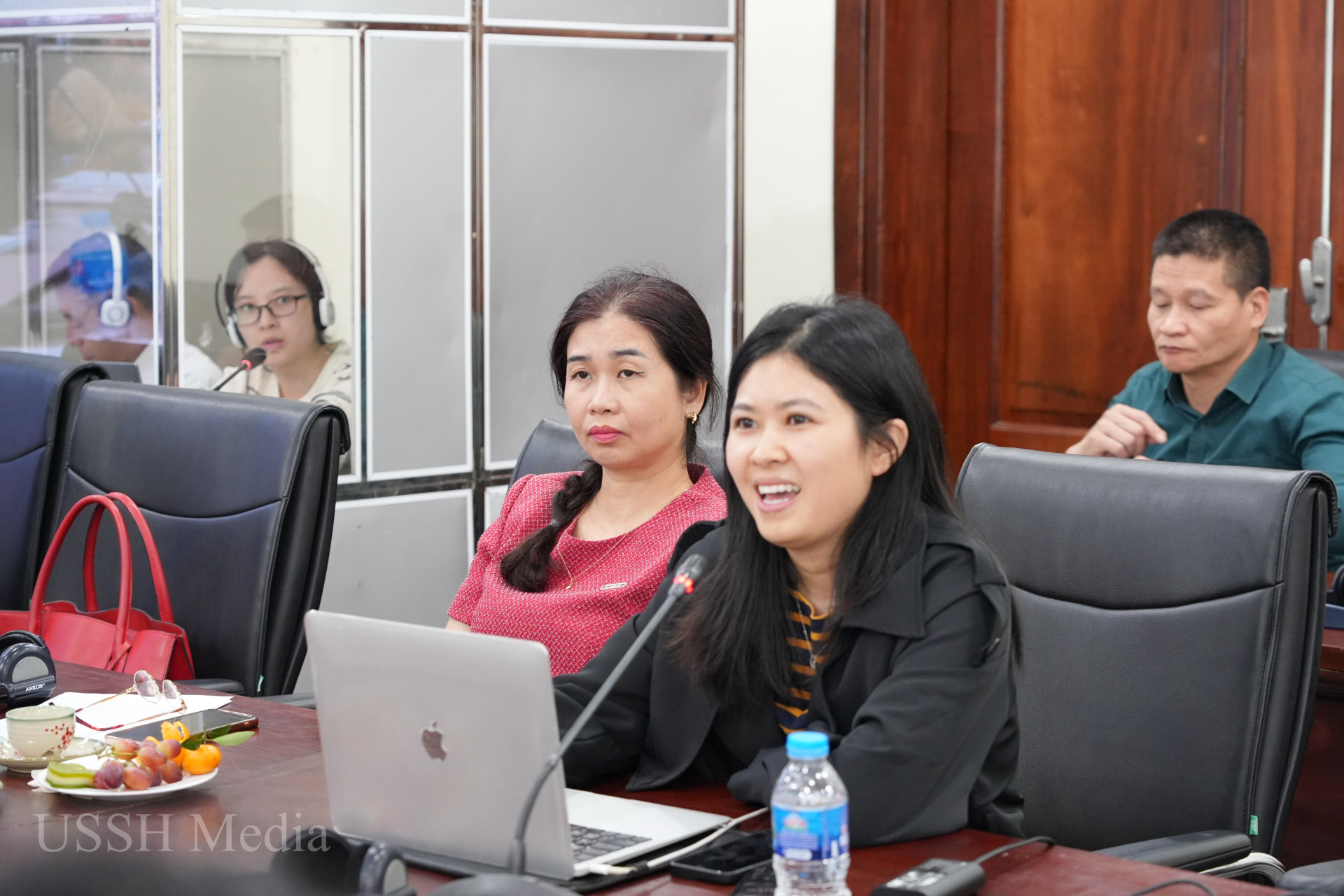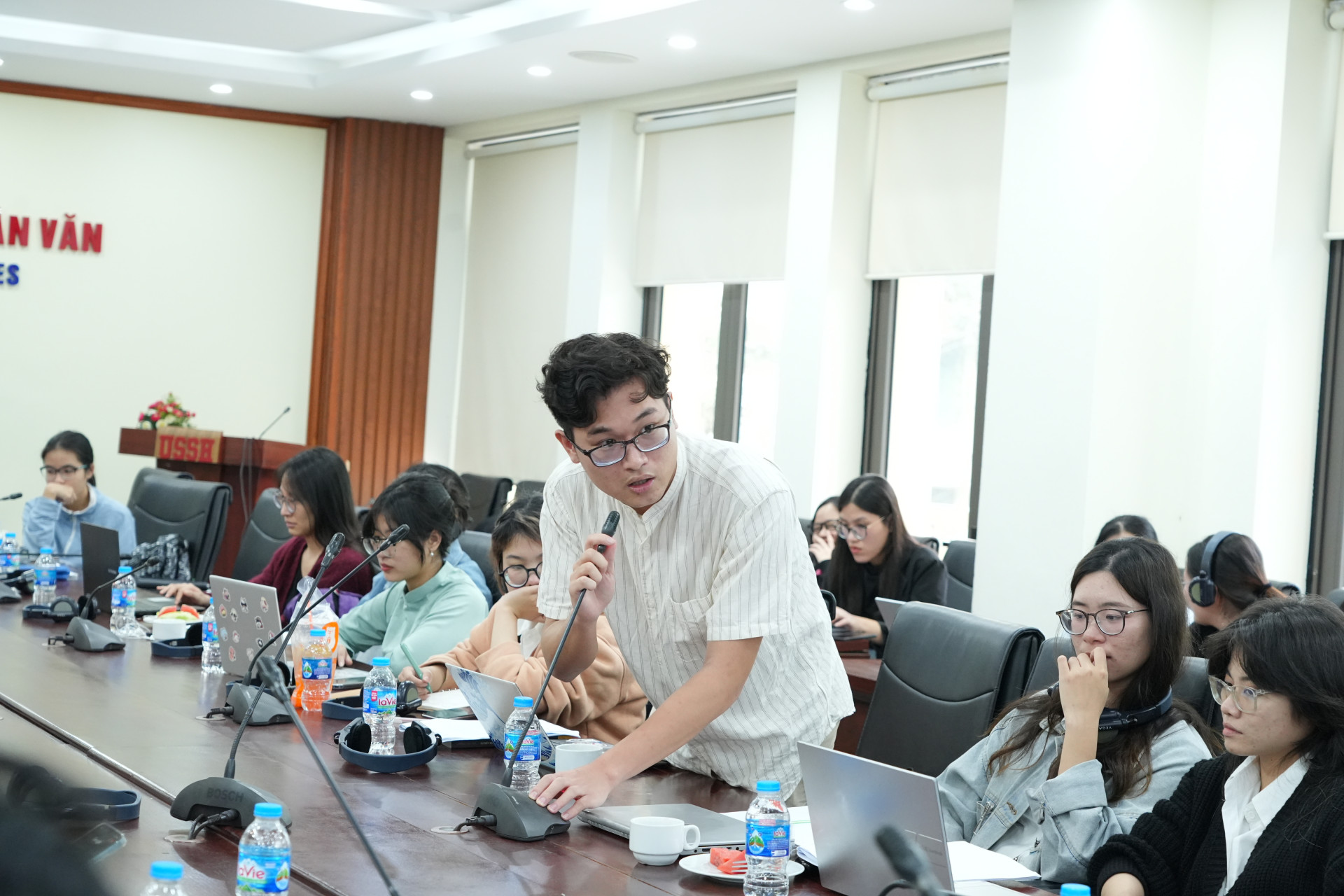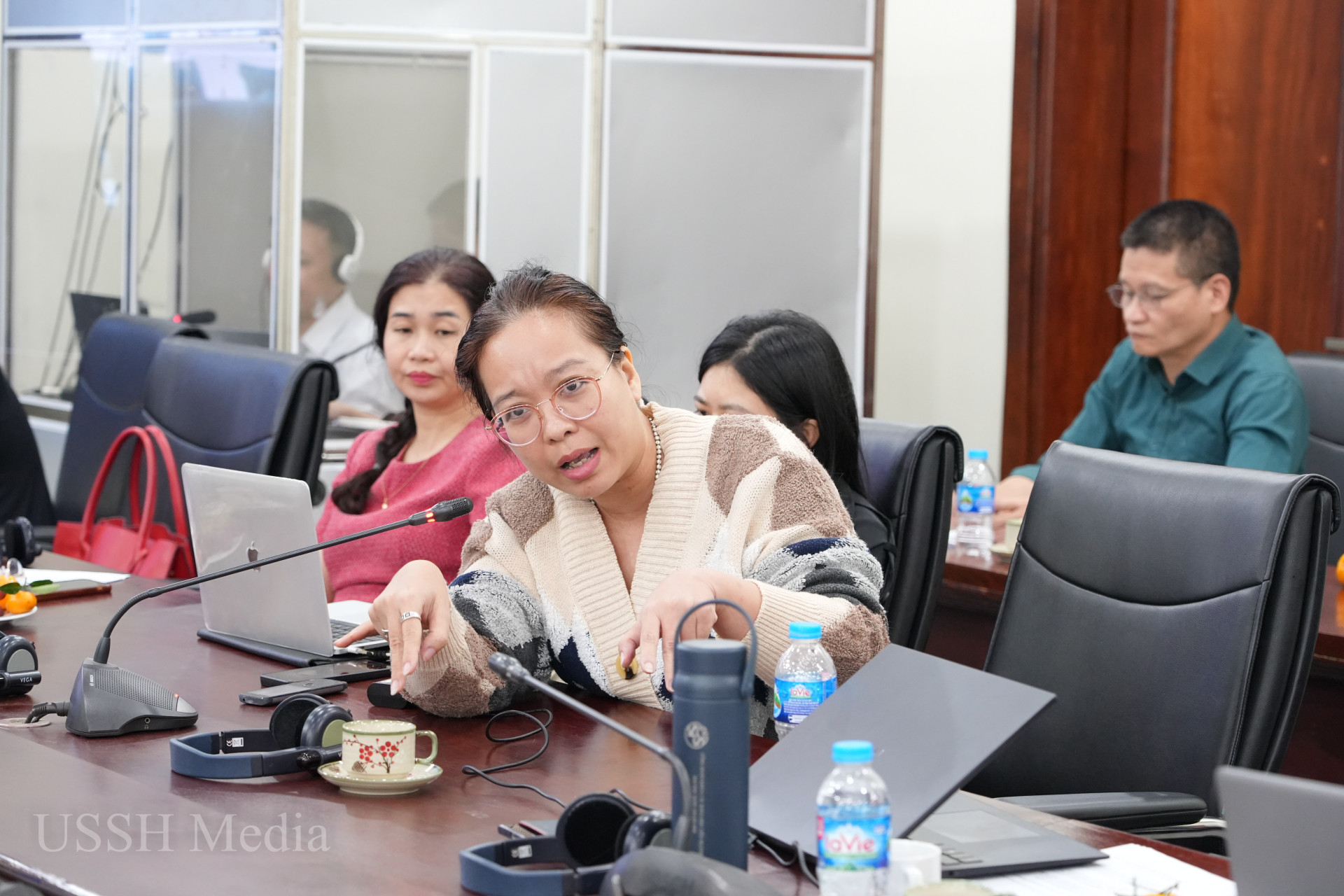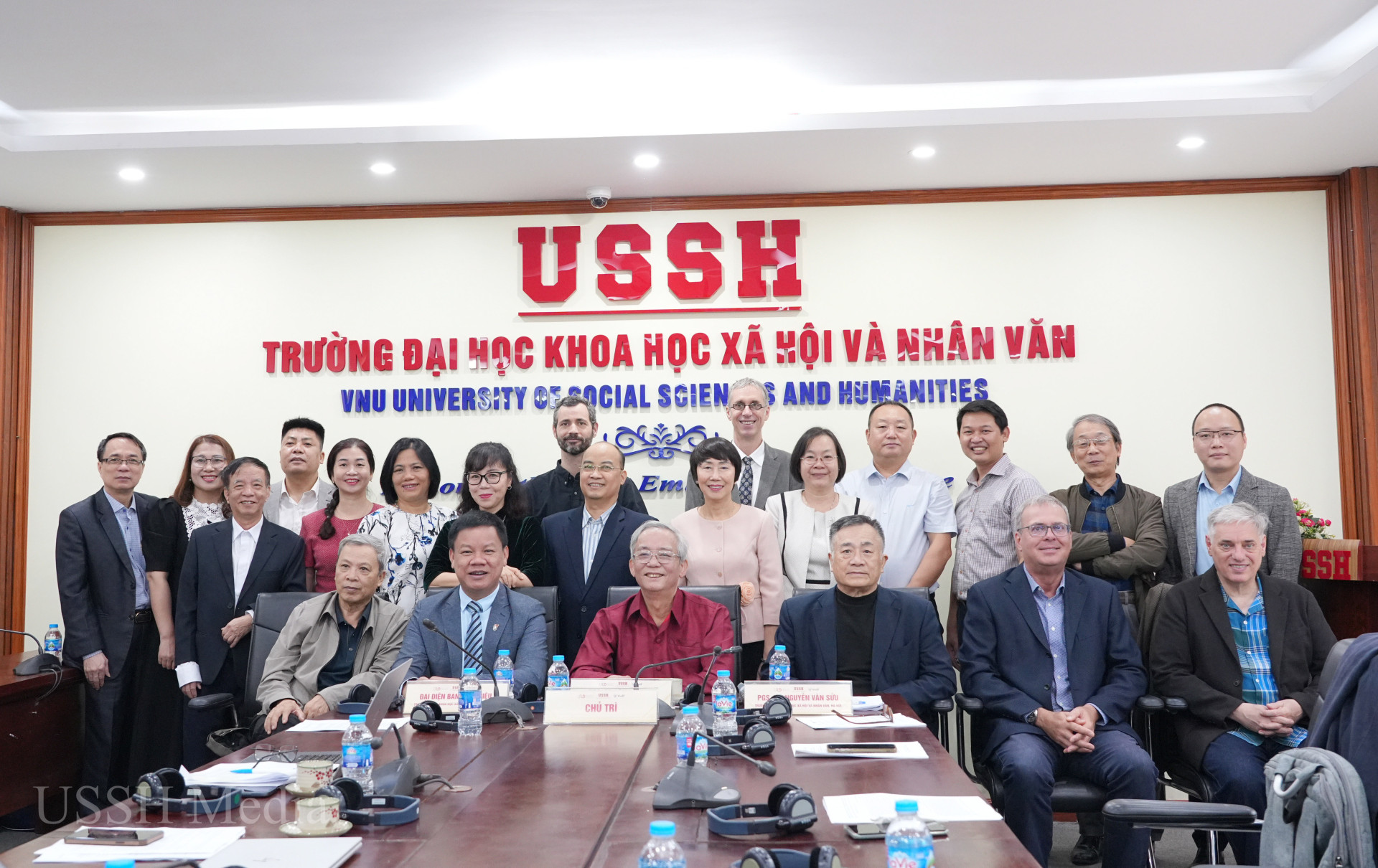The conference attracted the participation of many prestigious scholars at home and abroad (such as France, China, Russia, Germany, Australia, Canada, etc.), researchers from many universities and research institutes in Vietnam, representatives of a number of scientific and management agencies in the field of tourism and culture, a large number of students attending directly at the Hall and online via Zoom software.
The Organizing Committee of the Conference received nearly 30 full-text reports from Vietnamese and international scientists, focusing on a number of topics: Theoretical framework and interdisciplinary research methods on heritage and tourism; Discourse and negotiation in the community for tourism development; State and community institutions for cultural transmission; Living heritage and tourism development dynamics from urban to ethnic minority communities; Heritage of beliefs, traditional creativity in promoting heritage and sustainable tourism.
Speaking at the opening of the workshop, Prof. Dr. Lai Quoc Khanh (Vice-Rector of the University of Social Sciences and Humanities) emphasized: Article 88 of the amended Law on Cultural Heritage, which was just passed by the National Assembly 10 days ago (November 23, on Vietnam Cultural Heritage Day), clearly stated: "The use and exploitation of cultural heritage must ensure the requirements of promoting the fine traditions of ethnic groups living together in Vietnam; Contributing to the creation of new cultural values and expanding international cultural exchange; Contributing to sustainable development; and complying with the provisions of the law on intellectual property". Thus, the opportunities and challenges posed by heritage conservation and promotion in relation to tourism development in particular and sustainable development in general in Vietnam are practical issues that require consultation from Vietnamese and international scientists with multidimensional perspectives and multidisciplinary approaches to solve academic issues as a foundation for policy planning and implementation such as the relationship between stakeholders (state management, tourism and heritage community), heritage and tourism economics, law, and communication.
In that context, this international scientific conference “Heritage and Tourism from Anthropological and Interdisciplinary Approaches” will not only be an opportunity for researchers to share knowledge, but also contribute to promoting cooperation between stakeholders to preserve and promote heritage values in sustainable tourism development.
Prof. Dr. Lai Quoc Khanh delivered the opening speech at the International Scientific Conference: "Heritage and Tourism from Anthropological and Interdisciplinary Approaches"
Through specific case studies, analyzing the vivid and diverse practices of the processes of transforming culture into heritage, transforming cultural heritage into tourism products, the reports use a number of key concepts, such as discourse and negotiation, commodification, traditional creation, experience, living heritage, etc., not only to illuminate what is happening but also to show the diversity in the interpretation of Anthropology and social sciences on cultural heritage and tourism development based on new data obtained from field studies, including long-term and standardized ethnic field studies. Under that approach, scholars believe that heritage is not only associated with traditional cultural and historical values but also includes everyday, contemporary elements. Tourism, in relation to heritage, also needs to be viewed from economic, cultural and social perspectives.
Associate Professor, Dr. Quang Dai Tuyen - Nguyen Tat Thanh University with his report
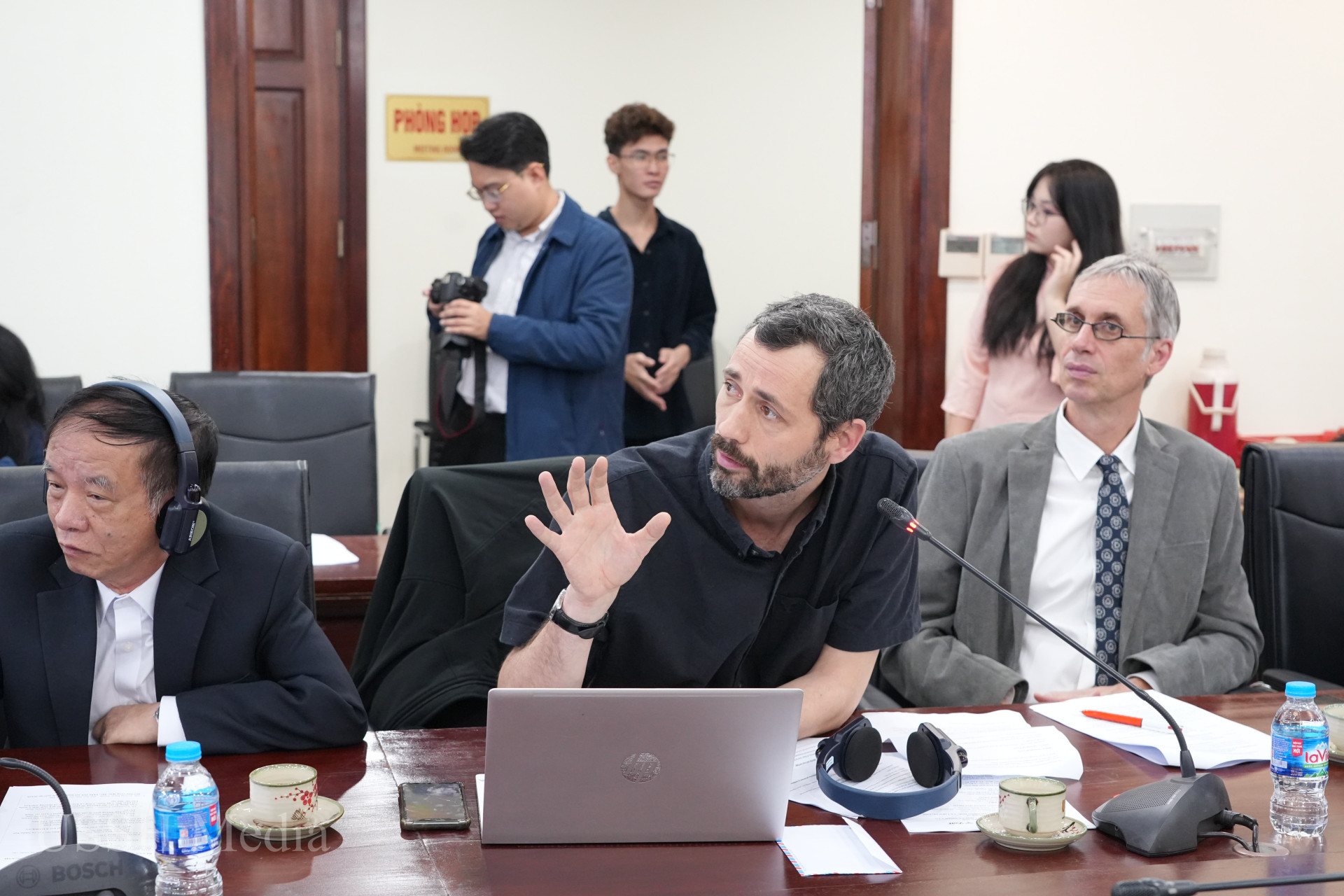
Dr. Emmanuel Pannier – Institute of Development Research (IRD), France
Prof. Vuong Bach Trung - Guangxi University for Nationalities, China
Based on the study of the multidimensional relationships between heritage conservation, tourism development and local communities, scientists have proposed a number of solutions to contribute to solving urgent problems in the relationship between heritage and tourism, in order to preserve and promote the value of heritage in the context of globalization and sustainable development. In which, the reports emphasize the anthropological and interdisciplinary approach: Combining anthropology, history, economics, tourism management and related fields to develop sustainably, preserve heritage values in the face of challenges such as commercialization, climate change, and conflicts of interest.
Professor. David Anderson - University of British Columbia, Canada
Dr. Nguyen Vu Hoang - University of Social Sciences and Humanities
Concluding the workshop, Associate Professor Dr. Nguyen Van Suu emphasized: “The workshop took place in 4 sub-committees, 14 papers were presented directly and more than 30 comments and very open exchanges on research results revolving around the theme of the workshop. The success of the workshop lies not only in sharing new research results of Vietnamese anthropologists and international scientists, but also in suggesting many very interesting issues that need to be further researched in a more thorough and in-depth manner.
With an anthropological and interdisciplinary approach, many reports have proposed policy advice of scientific quality and practical significance in preserving and promoting heritage; resolving the relationship between heritage conservation and socio-economic development, especially tourism in the trend of globalization and strong digital transformation.
On behalf of the organizers, Associate Professor Dr. Nguyen Van Suu once again thanked the participation of scientists, the companionship of VinGroup Innovation Fund, and the French Institute for Development Research for contributing to the success of the conference.
